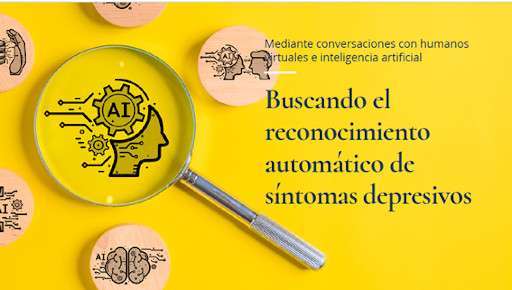News
Seeking automatic recognition of depressive symptoms
The Madrid Médico Magazine has echoed cutting-edge research carried out at LabLeni about Computational Psychiatry. This discipline aims to develop powerful artificial intelligence (AI) models to recognize biomarker patterns in mental health disorders

The Madrid Médico magazine has echoed cutting-edge research carried out at LabLeni led by researcher Javier Marín. Computational Psychiatry aims to develop powerful artificial intelligence (AI) models to recognize biomarker patterns in mental health disorders, and in this context, we conducted a study with 100 patients with these interesting results: the control group showed affiliative body movements through lateral head turns, while subjects with depressive symptoms made forward and backward movements, possibly related to increased stress, as well as avoidance of eye contact. In terms of speech, participants with depressive symptoms used more words associated with denial and exclusion and referred more to negative emotions. Controls more frequently used words related to friendship and health. At a neurophysiological level, subjects with depressive symptoms showed lower sympathetic activity, reflected in the relationship between heart rate variability and electrodermal activity. These results are in line with the Emotional Context Insensitivity hypothesis and were demonstrated for the first time in conversations with HV. In conclusion, we are facing reliable, objectifiable, standardizable, and comparable bioinformatics tools that can be of great help for the early detection of affective disorders.
Read more in: https://secure.webpublication.es/210352/1987548/#page=26
Read more in: https://secure.webpublication.es/210352/1987548/#page=26
News
XR2 INDUSTRY 1st Open Call
News The XR2Industry 1st Open Call for Hardware enablers will select up to 7 Developers of XR components (MidCaps or SMEs) aimed at integrating emerging technologies (such as 5G/6G, IoT, data, artificial intelligence, edge and cloud computing, and microelectronics) to...
LENI coordinates the new HE project XR2 INDUSTRY
News News
Mariano Alcañiz wins with the Outstanding Research Achievement at the UPV Innovation Awards 2023
News News
Eleonora Minissi wins the New Investigator Award at the 26th Cypsy Congress
News News
Assessment 3.0
News News
